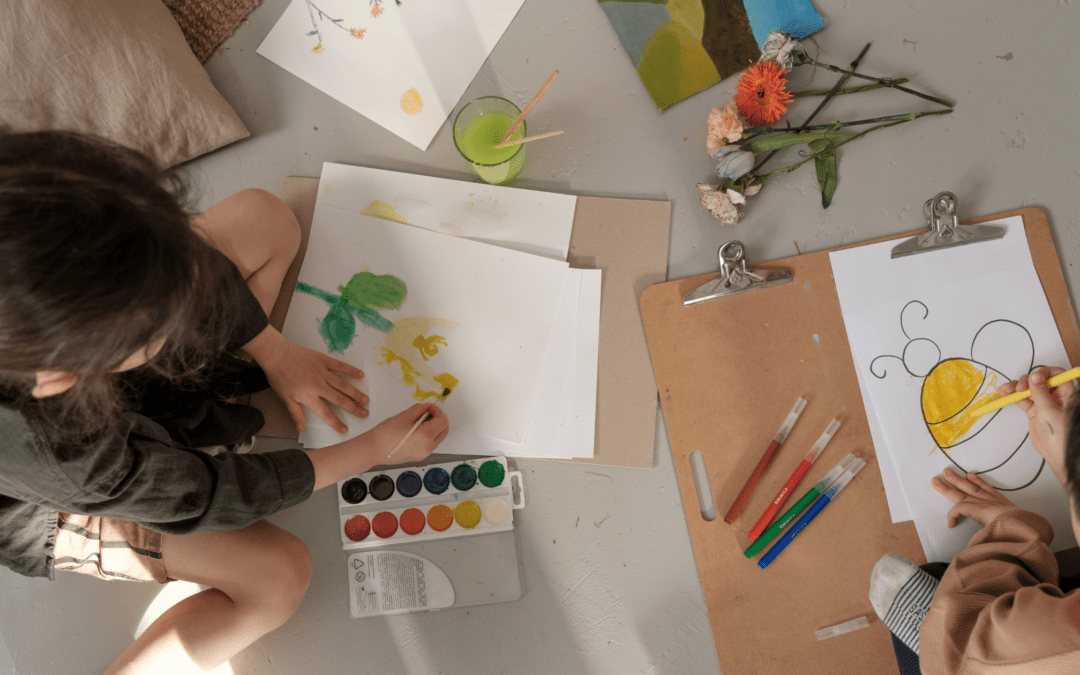Let’s face it, parenting can be a rollercoaster.
One day, your child is a bundle of joy, and the next, they’re consumed by worry. If you’re noticing signs of anxiety in your little one, you’re not alone.
In this blog post, we’ll explore the world of child anxiety, offering practical advice and support.
Is My Kid Just Being a Kid?
It’s perfectly normal for children to feel a bit anxious from time to time. After all, the world can be a big and scary place! However, if your child’s worries seem excessive, persistent, or interfere with their daily life, it might be a sign of something more.
Here are some signs to watch for:
- Excessive worry: Your child seems constantly worried about things, both big and small.
- Fear of the unknown: They’re overly afraid of new situations or experiences.
- Avoidance behavior: They avoid activities or places that make them anxious.
- Physical symptoms: Frequent headaches, stomachaches, or difficulty sleeping.
- Difficulty concentrating: They struggle to focus on schoolwork or other tasks.
- Social withdrawal: They prefer to be alone rather than spending time with friends or peers.
- Perfectionism: They have an intense need to be perfect, which can lead to stress and anxiety.
If you recognize any of these signs in your child, it’s important to talk to them about how they’re feeling. Let them know that it’s okay to feel anxious and that you’re there to support them.
What Are the Signs of Child Anxiety?
Understanding the signs of child anxiety can help you identify when your child might be struggling and provide appropriate support. Here are some common symptoms to watch for:
Physical Symptoms
- Frequent headaches or stomachaches: These can be a way for kids to express their anxiety physically.
- Changes in appetite: Loss of appetite or overeating.
- Trouble sleeping: Difficulty falling asleep, staying asleep, or experiencing nightmares.
- Fatigue: Feeling tired or exhausted, even after getting enough sleep.
- Nausea or vomiting: These can be physical manifestations of anxiety.
Emotional Symptoms
- Excessive worry: Constant worry about things, both big and small.
- Fear of the unknown: Overly afraid of new situations or experiences.
- Sadness or irritability: Feeling down or easily annoyed.
- Difficulty managing emotions: Struggling to control feelings of anger, frustration, or sadness.
- Low self-esteem: Negative beliefs about oneself and one’s abilities.
Behavioral Symptoms
- Avoidance behavior: Avoiding activities or places that trigger anxiety.
- Difficulty concentrating: Struggling to focus on schoolwork or other tasks.
- Social withdrawal: Preferring to be alone rather than spending time with friends or peers.
- Perfectionism: An intense need to be perfect, which can lead to stress and anxiety.
- Clingy behavior: Seeking constant reassurance or attention from caregivers.
Imagine a young girl named Lily who used to love going to school.
However, she recently started complaining of stomach aches and headaches on school days. She’s also become more withdrawn and seems to be constantly worried about her grades. These symptoms might suggest that Lily is experiencing anxiety related to school.
If you notice any of these signs in your child, it’s important to talk to them about how they’re feeling.
Let them know that you’re there to listen and support them.
How Can I Help My Anxious Kid?
Here are some practical tips to help your child manage their anxiety:
- Validate their feelings: Let your child know that it’s okay to feel worried and that you’re there to listen. Avoid dismissing their feelings or telling them to “just relax.”
- Teach relaxation techniques: Practice deep breathing, mindfulness, or progressive muscle relaxation together. These techniques can help your child calm their mind and body.
- Encourage healthy habits: Make sure your child gets enough sleep, eats nutritious food, and engages in regular physical activity. A healthy lifestyle can help reduce stress and anxiety.
- Limit screen time: Excessive screen time can contribute to anxiety. Set boundaries for screen usage and encourage your child to spend time outdoors and engaging in other activities.
- Create a calm environment: Make sure your child’s bedroom and other spaces are peaceful and organized. A clutter-free environment can help reduce anxiety.
- Set realistic expectations: Avoid putting too much pressure on your child to be perfect. Help them understand that it’s okay to make mistakes and that everyone experiences setbacks.
- Model healthy coping mechanisms: Show your child how you manage stress and anxiety. By seeing you handle challenges in a healthy way, they can learn valuable coping skills.
- Seek professional help if needed: If your child’s anxiety is significantly impacting their daily life, consider seeking the guidance of a therapist or counselor. They can provide personalized support and strategies.
Remember, being a supportive and understanding parent can make a big difference in helping your child cope with anxiety.
Coping Skills for Kids
- Cognitive-behavioral therapy (CBT): This helps kids identify and challenge negative thoughts.
- Mindfulness meditation: Focusing on the present moment can reduce anxiety.
- Journaling: Writing down feelings can help kids process their emotions.
- Support groups: Connecting with other kids and families going through similar things can be helpful.
Talking to Your Child’s School
- Be open and honest: Share your child’s anxiety symptoms and how they’re affecting school.
- Request accommodations: If necessary, ask for things like extra time on tests or reduced homework.
- Collaborate with teachers: Work together to create a supportive learning environment.
How Can Child Therapy Help?
At Stegall Counseling, our therapists specialize in helping kids with anxiety. Through therapy sessions, we can provide your child with the tools and support they need to:
- Understand their anxiety: Learn to recognize and manage their anxious thoughts and feelings.
- Develop coping skills: Discover practical techniques to reduce anxiety and stress, such as deep breathing, mindfulness, and progressive muscle relaxation.
- Challenge negative thinking patterns: Identify and replace negative thoughts with more positive and realistic ones.
- Build self-esteem: Develop a positive self-image and believe in their abilities.
- Improve social skills: Learn to interact with others confidently and build healthy relationships.
- Navigate challenging situations: Develop strategies to cope with stressful or anxiety-provoking situations.
Remember, you’re not alone.
Many parents go through similar experiences. With the right support, your child can learn to manage their anxiety and live a happy, fulfilling life.
Contact Us Today
Renewing Your Life, One Day at a Time.


0 Comments